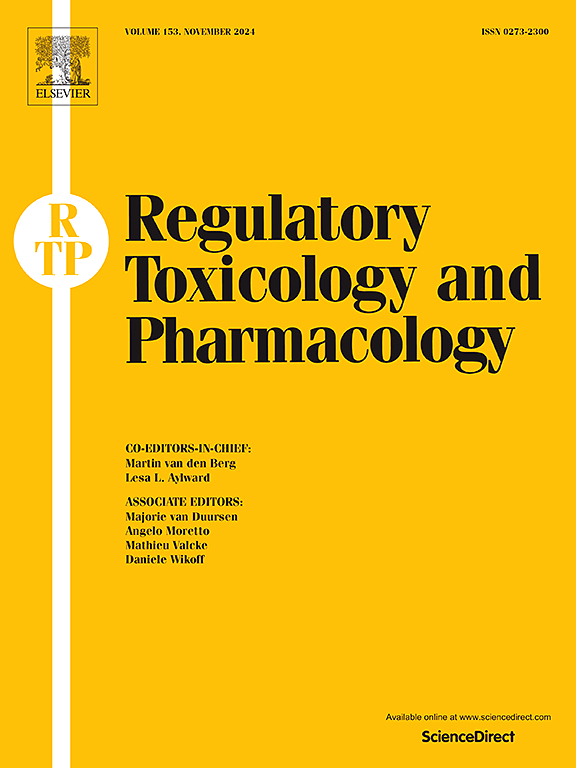A review of the genotoxic effects of antiparasitic drugs on parasites and their hosts
IF 3
4区 医学
Q1 MEDICINE, LEGAL
引用次数: 0
Abstract
Antiparasitic medications are drugs used to treat infections caused by parasites like protozoa, helminths, and ectoparasites by either killing the parasite or inhibiting its growth and reproduction. These medications are crucial for treating parasitic diseases and can vary in dosage and administration depending on the type of infection with proper diagnosis being essential for effective treatment. Nevertheless, such drugs can also cause a range of side effects including genotoxicity, depending on the type of medication and the individual's response. Therefore, here we will summarize data on the genotoxic effects of some antiparasitic drugs since many parasites provoke DNA damage per se, and therapy can enhance such genotoxic effects. The DNA-damaging effects of antiparasitic drugs enable the use of some of them for cancer treatment. Since a parasitic disease comes with severe consequences, the cost-benefit should be considered when taking drugs against such a disease even in terms of their potential genotoxicity. While some antiparasitic drugs have shown genotoxic potential in laboratory studies, most are considered safe for human use at therapeutic doses. Long-term or high-dose exposure may carry more risk; moreover, the genotoxic effects of the drugs can interfere with the genotoxicity of the parasitic infection. More research is needed to fully understand the implications for human health. Nevertheless, the present study has confirmed the need for further cytogenetic research and regular patient monitoring to minimize the risk of an adverse event, especially among frequent travellers visiting parasite-affected areas.
抗寄生虫药物对寄生虫及其宿主的基因毒性影响综述
抗寄生虫药物是通过杀死寄生虫或抑制其生长和繁殖来治疗由原虫、蠕虫和外寄生虫等寄生虫引起的感染的药物。这些药物对治疗寄生虫病至关重要,剂量和给药可根据感染类型而有所不同,正确诊断是有效治疗的必要条件。然而,这类药物也可能引起一系列副作用,包括遗传毒性,这取决于药物的类型和个人的反应。因此,这里我们将总结一些抗寄生虫药物的基因毒性作用的数据,因为许多寄生虫本身会引起DNA损伤,而治疗可以增强这种基因毒性作用。抗寄生虫药物的dna破坏作用使其中一些药物能够用于癌症治疗。由于寄生虫病会带来严重后果,因此在服用治疗这种疾病的药物时,即使考虑到其潜在的遗传毒性,也应考虑成本效益。虽然一些抗寄生虫药物在实验室研究中显示出潜在的遗传毒性,但大多数抗寄生虫药物被认为在治疗剂量下对人类使用是安全的。长期或高剂量暴露可能带来更大的风险;此外,药物的遗传毒性作用可以干扰寄生虫感染的遗传毒性。需要更多的研究来充分了解对人类健康的影响。然而,目前的研究证实,需要进一步的细胞遗传学研究和定期患者监测,以尽量减少不良事件的风险,特别是在经常访问寄生虫感染地区的旅行者中。
本文章由计算机程序翻译,如有差异,请以英文原文为准。
求助全文
约1分钟内获得全文
求助全文
来源期刊
CiteScore
6.70
自引率
8.80%
发文量
147
审稿时长
58 days
期刊介绍:
Regulatory Toxicology and Pharmacology publishes peer reviewed articles that involve the generation, evaluation, and interpretation of experimental animal and human data that are of direct importance and relevance for regulatory authorities with respect to toxicological and pharmacological regulations in society. All peer-reviewed articles that are published should be devoted to improve the protection of human health and environment. Reviews and discussions are welcomed that address legal and/or regulatory decisions with respect to risk assessment and management of toxicological and pharmacological compounds on a scientific basis. It addresses an international readership of scientists, risk assessors and managers, and other professionals active in the field of human and environmental health.
Types of peer-reviewed articles published:
-Original research articles of relevance for regulatory aspects covering aspects including, but not limited to:
1.Factors influencing human sensitivity
2.Exposure science related to risk assessment
3.Alternative toxicological test methods
4.Frameworks for evaluation and integration of data in regulatory evaluations
5.Harmonization across regulatory agencies
6.Read-across methods and evaluations
-Contemporary Reviews on policy related Research issues
-Letters to the Editor
-Guest Editorials (by Invitation)

 求助内容:
求助内容: 应助结果提醒方式:
应助结果提醒方式:


